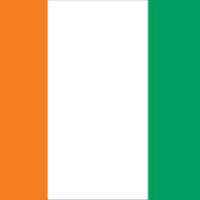Ivory Coast is among the most prosperous nations in the West African sub-region, with agricultural activities being core business in the country’s economy (Oyebamiji, 2024). Cocoa production, for instance, accounts for a big percentage; this is due to the fact that the country is the world’s largest cocoa exporter. Besides cocoa, cotton and coffee are other prime agricultural products that considerably affect the textile sector (Séraphin & Cyrille, 2022). The fabrics used by the apparel industry enhance the textile industry and, at the same time, promote interdependence with other countries like China, which supplies raw cotton for the production (Kouassi et al., 2021). Agricultural exports remain the nation’s main export earner, and this aspect leaves the nation challenged by volatile international commodity prices, which affect a combination of the agricultural and textile industries.
Aside from agriculture, the Ivorian government has focused on infrastructure development with commitments to transport, energy, and telecommunications as a way of fostering the productivity of the economy (Kouakou, 2020). The involvement of Côte d’Ivoire in regional organizations like the Economic Community of West African States enhances the economic relations between this country and the rest of the neighbors in the region, forming an inter-reliance of the West African economy (Dioulo & Sawaneh, 2021). Through these partnerships, it allows for a country like Côte d’Ivoire to export goods and services seamlessly, thereby removing barriers to trade and hence allowing the textile industries to source for raw materials and markets (Iloh et al., 2021). However, the social-economic players between Côte d’Ivoire and its neighbors still exert challenges to full-fledged economic integration within the region.




